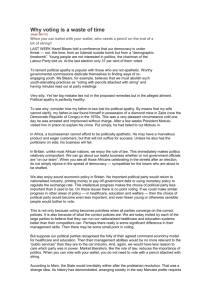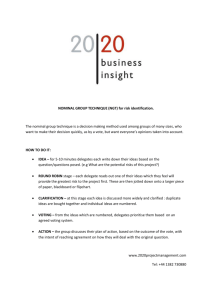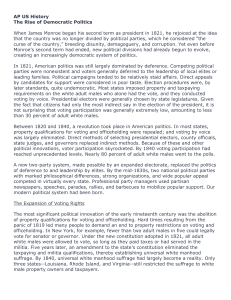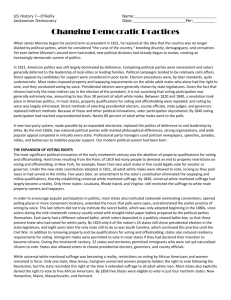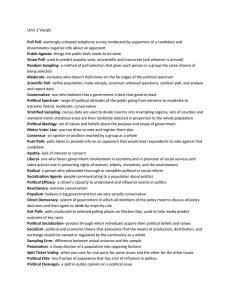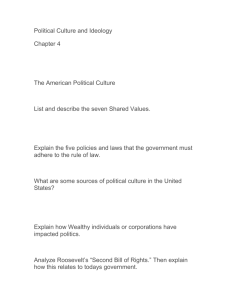Persuasive Essay - Sadlier
advertisement
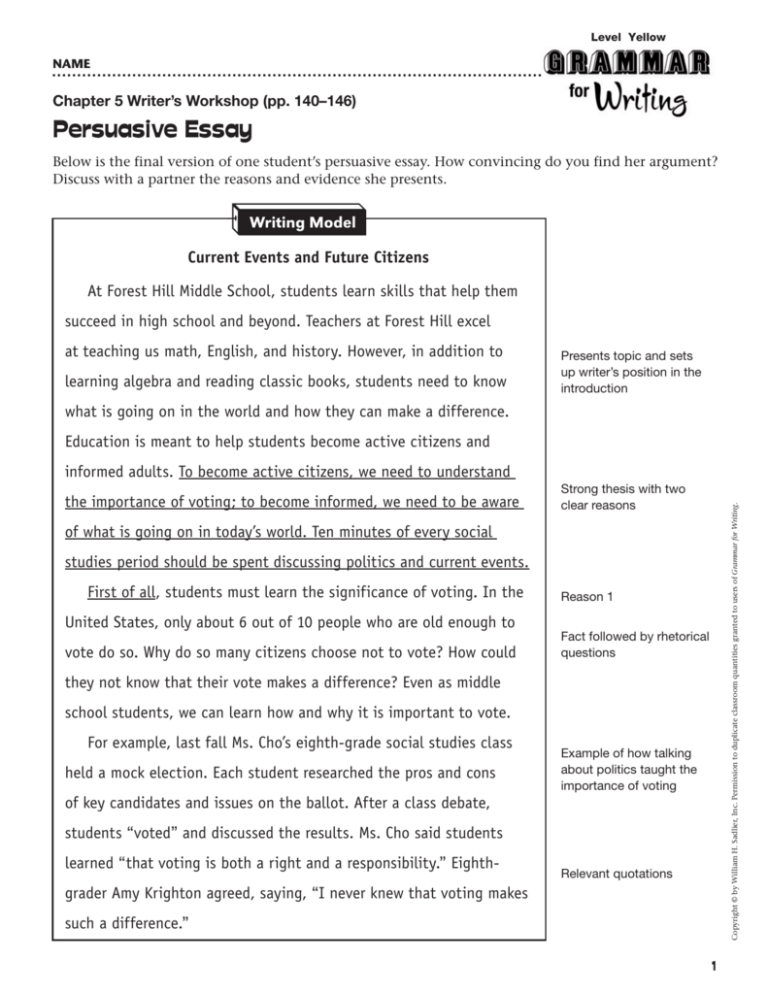
Level Yellow NAME Chapter 5 Writer’s Workshop (pp. 140–146) Persuasive Essay Below is the final version of one student’s persuasive essay. How convincing do you find her argument? Discuss with a partner the reasons and evidence she presents. Writing Model Current Events and Future Citizens At Forest Hill Middle School, students learn skills that help them succeed in high school and beyond. Teachers at Forest Hill excel at teaching us math, English, and history. However, in addition to learning algebra and reading classic books, students need to know Presents topic and sets up writer’s position in the introduction what is going on in the world and how they can make a difference. Education is meant to help students become active citizens and informed adults. To become active citizens, we need to understand Strong thesis with two clear reasons Copyright © by William H. Sadlier, Inc. Permission to duplicate classroom quantities granted to users of Grammar for Writing. the importance of voting; to become informed, we need to be aware of what is going on in today’s world. Ten minutes of every social studies period should be spent discussing politics and current events. First of all, students must learn the significance of voting. In the Reason 1 United States, only about 6 out of 10 people who are old enough to vote do so. Why do so many citizens choose not to vote? How could Fact followed by rhetorical questions they not know that their vote makes a difference? Even as middle school students, we can learn how and why it is important to vote. For example, last fall Ms. Cho’s eighth-grade social studies class held a mock election. Each student researched the pros and cons Example of how talking about politics taught the importance of voting of key candidates and issues on the ballot. After a class debate, students “voted” and discussed the results. Ms. Cho said students learned “that voting is both a right and a responsibility.” Eighth- Relevant quotations grader Amy Krighton agreed, saying, “I never knew that voting makes such a difference.” 1 Continued Writing Model Second, discussing current events will help students become Reason 2 informed adults. For instance, last week seventh-grade social studies teacher Mr. Hess brought up the current elections in Zimbabwe. Includes an anecdote as evidence Eight out of ten students said they had never thought about African governments before and that they would be interested in learning more about Africa today. Our interest inspired a project in which small groups will research a current event in Africa. My group will research the use of solar panels in the Sahara Desert. In this case, learning about one current event created interest in another. Projects like these will make students more likely to seek information about global cultures and events in the future. Some teachers and students are concerned that talking about Counterargument current events and politics will take away from a teacher’s regular considering the benefits that students receive. Also, teachers can Reasonable tone used in responses to counterargument Copyright © by William H. Sadlier, Inc. Permission to duplicate classroom quantities granted to users of Grammar for Writing. lesson plan. However, ten minutes is not a large amount of time, connect their lesson plan to a current event. For example, a lesson on trade in ancient Greece can connect to a discussion of current Example global trade. Another argument against this plan is that a teacher’s opinions will influence students. But, in Ms. Cho’s mock election, the students did all the research and debate. Teachers can stick to facts rather than opinions when talking about current events. Time should be set aside to talk about current events and Restates the thesis in the conclusion politics. These topics will help students become better citizens and more informed about what is going on in the world. Learning about current events now will make students more likely to vote later in life and to pay attention to the world they live in. Both of these outcomes are worth ten minutes of a class’s time. 2


